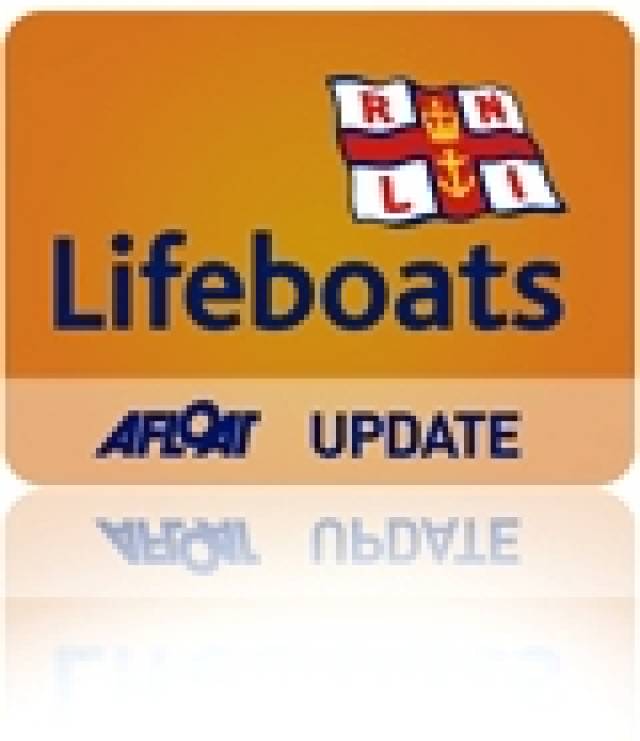#RNLI - A fisherman whose boat sank in minutes has thanked several organisations who implemented and trained him on using a lifejacket for saving his life.
Samuel Cully, a fisherman from Portavogie, was in the water for 45 minutes after his vessel sank on Wednesday 18 September, off the coast of Co Down. Weather conditions at the time were rough seas with Force 5 to 6 winds blowing.
RNLI lifeboats from Portaferry and Donaghadee were launched within minutes of a May Day being received by the Belfast Coastguard, along with the Irish Coast Guard helicopter Rescue 116.
Recently Cully was reunited with the volunteer crew at Portaferry who rescued him.
Just weeks earlier, Cully had been provided with a personal flotation device in a grant-aided scheme run by the Fishermen’s Mission with funding and support from Seafish, the Department for Agriculture and Rural Development through the European Fisheries Fund, the Northern Ireland Fish Producers Organisation, RNLI, the Maritime Coastguard Agency and supermarket Asda.
The project aims to ensure that fishermen will receive a grant-aided PFD and the training required to ensure its proper use.
Frankie Horn, RNLI fishing safety manager for the UK and Ireland, said: "It’s great that Samuel is safe, and back with his family. We want fishermen to see the benefits of wearing a personal flotation device or lifejacket and for them to wear it voluntarily.
"This will be an ongoing process for us, talking to fishermen and working with the manufacturers to ensure that the PFDs provided are the best possible design for the fishing industry."
With the funding and logistics generously covered by other agencies, the RNLI was involved in leading the safety training session – an act that Cully is immensely grateful for.
"I was only able to swim five or ten metres or so, and even then the wind and swell were washing me away from the shore," he recalled. "The boat went down so quickly, and I was so relieved to find the lifejacket doing exactly what I was told it would do. I cannot thank all those organisations involved enough."
In more recent news, Donaghadee and Portaferry RNLI launched yesterday (Tuesday 8 October) to go to the aid of a man fishing off rocks who became stranded by the tide.
Belfast Coastguard had received a call from a member of the general public just after 10.20am alerting them of the emergency.
On arriving on the scene, Donaghadee's all-weather lifeboat crew found their colleagues from Portaferry RNLI's inshore lifeboat were taking the man off the rocks and returning him safely into Portavogie harbour.
































































